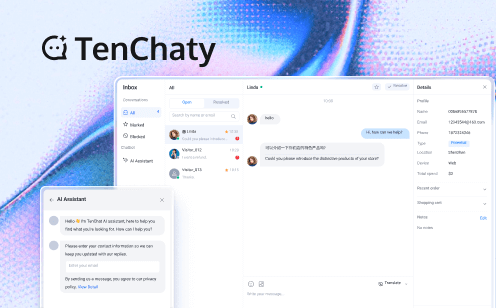Developers rely on a wide range of skills to transform their ideas into sleek websites and complex applications. With so many skills to master, you might be wondering which ones truly set you apart in today's competitive job market. Whether you're just starting out or refining your expertise, it's crucial to know the key abilities that matter.
In this guide, we'll break down the 13 must-have skills that should definitely be highlighted in your developer skill section website. From mastering front-end coding to getting a grip on user experience design, read on to discover what you need to succeed!

What Is Web Development?
Web development is all about creating and maintaining websites. Think of it as the behind-the-scenes magic that makes the internet work. When you visit a website, whether it's a blog, an online store, or a social media platform, web development is what brings it to life.
At its core, web development involves two main parts: front-end and back-end development. Front-end development deals with everything you see and interact with on a website—like layouts, design, content, and navigation. It's what makes a site visually appealing and user-friendly.
On the flip side, back-end development deals with the behind-the-scenes stuff that makes everything run smoothly. This includes servers, databases, and application logic.
13 Web Developer Skills You Should Have
To thrive in web development, there are certain skills that you'll want to build in your toolkit. Let's break down the 13 essential skills will help you create, manage, and enhance websites effectively.
1. Front-End Coding
Front-end coding is the process of creating everything users see and interact with on a website. It's where you build the visual and interactive elements, like buttons, text, images, and layouts. This part of development uses three main languages: HTML, CSS, and JavaScript.
- HTML (Hypertext Markup Language): Think of HTML as the skeleton of a webpage. It structures content by defining things like headings, paragraphs, images, and links.
- CSS (Cascading Style Sheets): CSS is all about styling. It controls the appearance of the HTML elements—adding colors, fonts, spacing, and layouts. CSS brings your webpage to life by making it visually appealing and easy to navigate.
- JavaScript: JavaScript brings the website to life by adding interactive features. This coding language allows for things like drop-down menus, image sliders, pop-up notifications, and other interactive elements that respond to user actions.
2. Git
Git is a version control system that's crucial for managing code changes, especially when working in a team. Think of it as a safety net for your projects; if something goes wrong, you can easily revert back to a previous version.
By learning Git, you'll be able to easily track changes, experiment with new features in separate branches, and work more effectively with other developers. This skill is highly valued by employers and essential for organized, collaborative projects.
3. Responsive Design
Responsive design ensures your website looks good and works well on all devices, from desktops to smartphones. In today's mobile-first world, a website that only looks good on a computer screen is likely to lose visitors.
With responsive design, you adjust layouts, fonts, images, and navigation to fit different screen sizes. By mastering responsive design techniques—often aided by frameworks like Bootstrap—you create user-friendly sites that keep visitors engaged, regardless of the device they're using.
4. Back-End Web Programming Languages
Back-end web development is like the "brain" of a website—it's everything that happens behind the scenes to make the website work. It handles things like storing and retrieving data, managing user accounts, processing orders, and more.
To make all this happen, web developers use back-end programming languages like Python, Ruby, PHP, Java, and Node.js. Here's a simple breakdown of how these back-end programming languages contribute to a website:
- Python: Python is a versatile, beginner-friendly language widely used due to its readability and extensive libraries. It powers many web applications and frameworks, like Django and Flask. Python is popular for data processing, API integrations, and machine learning applications.
- Ruby: Ruby is known for its simplicity and productivity, thanks to its easy-to-read syntax. It's the backbone of the Ruby on Rails framework, which is a popular choice for startups due to its efficiency and developer-friendly environment.
- PHP: PHP is a widely used language primarily suited for server-side development. Known for powering popular platforms like WordPress, PHP is favored for content-heavy sites. It integrates well with databases like MySQL, making it a go-to for managing dynamic content.
- Java: Java is a robust, scalable language commonly used for large-scale enterprise applications. Its object-oriented nature makes it reliable for complex web applications. Java powers frameworks like Spring, which helps you create secure, high-performance websites and apps.
- Node.js: Node.js is a JavaScript runtime that allows you to use JavaScript for back-end development. Known for its fast performance and non-blocking architecture, it's ideal for handling real-time data in applications like chat apps and online gaming.

5. SEO (Search Engine Optimization)
SEO, or Search Engine Optimization, is all about making your website more visible on search engines like Google. By understanding SEO, you learn how to optimize your site's content and structure to improve its ranking, which helps attract more organic traffic.
This involves using keywords, creating valuable content, providing user-friendly URLs, ensuring fast loading times, and more. Additionally, you should be familiar with SEO concepts such as metadata, schema, and indexing.
6. UX and UI Design
Imagine UX design as the architecture of a digital project, whereas UI design is more like interior design. UX designers plan user journeys with data and produce design deliverables like wireframes, user flows, storyboards and prototypes.
On the other hand, UI designers focus on the visual components of design, collaborating with UX designers, product managers, and engineers to build graphic elements such as navigation buttons and search fields.
7. Program Frameworks
Frameworks like React, Angular, and Vue (for front-end) or Django and Ruby on Rails (for back-end) offer pre-built structures that simplify coding tasks. Instead of starting from scratch, frameworks provide you with reusable code and standardized practices, which speed up development and help maintain consistency.
Learning to work with frameworks can make you a more efficient developer and is often preferred in the industry. Familiarity with popular frameworks also makes it easier to handle complex projects and collaborate with other developers who use these tools.
8. Testing and Debugging
Testing and debugging are critical for making sure your website runs smoothly and meets quality standards. Testing involves verifying that each part of your site functions correctly, while debugging helps you find and fix errors. Tools like Chrome DevTools, Jest, and Selenium make testing and debugging easier, allowing you to catch issues before they affect users.
9. CMS
A Content Management System (CMS), like WordPress, Shopify, or Drupal, allows you to create, manage, and modify website content without needing to code every single page. CMS platforms are especially popular for blogs, business websites, and e-commerce sites, making it easier to handle large amounts of content.
Knowing how to work with a CMS gives you flexibility and makes it easier for non-technical team members to update website content. It's a valuable skill for developers since so many websites rely on CMS for day-to-day management, and understanding how to customize and troubleshoot these systems can set you apart.
10. Attention to Detail
Attention to detail is key for web developers because even a small error in code can lead to big issues on a website. Whether it's ensuring that every element is perfectly aligned or double-checking code for syntax errors, attention to detail makes your work look polished and professional. This skill is also essential for debugging and testing, as noticing small discrepancies helps you identify and fix issues before they affect the user experience.
11. Problem Solving
As a web developer, you'll encounter challenges—from fixing bugs in your code to figuring out the best way to implement a feature. Problem-solving skills help you tackle these issues with confidence.
Problem solving involves breaking down complex tasks, thinking creatively, and applying logical solutions to overcome obstacles. By developing strong problem-solving abilities, you'll be able to navigate unexpected hurdles and keep your projects on track.
12. Strong Communication Skills
Good communication skills are essential for web developers, especially when working in a team or discussing project requirements with clients. You'll need to explain technical information in a way that's easy for non-technical stakeholders to understand. Clear communication also helps you collaborate more effectively with designers, project managers, and other developers, ensuring everyone is on the same page.
13. Creativity
Web development isn't just about writing code—it's also about coming up with innovative ideas and solutions. Creativity allows you to think outside the box and design unique, engaging user experiences. Whether you're brainstorming an original design, experimenting with new frameworks, or finding a creative way to solve a problem, this skill keeps your work fresh and exciting.
How to Improve Your Web Development Skills?
Improving your web development skills doesn't have to feel overwhelming. With the right approach, you can steadily build up your abilities and stay current with industry trends. Here are some practical steps you can take to level up your skills as a web developer.
Practice Regularly
The best way to improve your coding skills is by practicing. Build small projects, work on coding challenges, or contribute to open-source projects. Sites like freeCodeCamp and CodePen offer exercises and challenges that can help you try out new ideas and sharpen your skills.
Learn New Frameworks and Languages
While mastering HTML, CSS, and JavaScript is essential, expanding your knowledge to include frameworks like React, Angular, or Vue can make you more versatile. Similarly, learning back-end languages such as Python, Ruby, or PHP can turn you into a full-stack developer, making you valuable in a wider range of projects.
Take Time for Debugging and Testing
Improving your testing and debugging skills can save you a lot of time in the long run. Practice using tools like Chrome DevTools to inspect and troubleshoot code. Additionally, learning some basics of testing, like unit testing or automated testing, can make your code more reliable and robust.
Get Certifications
Certifications can help you verify your web development skills and showcase your experience to potential employers. Certified Web Developer, Certified Web Designer, and Certified Front-End Developer are three popular web development credentials.
Stay Updated on Industry Trends
The tech world moves fast, so staying updated is essential. Follow web development blogs, join forums, and subscribe to newsletters from sites like Smashing Magazine or CSS-Tricks.
Additionally, explore industry-leading tools like Tencent RTC for building feature-rich and highly interactive websites or applications. Tencent RTC offers a suite of solutions for web developers, from live streaming and audio/video calls to social messaging and online education features.
Tencent RTC's SDK and API tools allow you to integrate interactive capabilities quickly and reliably, providing your users with a seamless experience. Staying informed about such advancements will help you stay competitive and up to date.
Conclusion
Now that you have a solid understanding of the key skills to highlight on your developer skill section website, it's time to take action! Each skill, from front-end coding and UX design to communication and creativity, helps create smooth and user-friendly websites. By focusing on continuous improvement and keeping up with trends, you can really elevate your web development game and set yourself up for a rewarding career.
FAQs
How long does it take to learn web development skills?
Learning web development usually takes 3 to 12 months, with basics like HTML, CSS, and JavaScript taking 1 to 3 months, and full-stack proficiency up to a year, depending on your prior experience and dedication.
Is it hard to learn web development?
Web development is not hard to learn in the sense that you don't need to be a genius or great at math, but attention to detail is essential. Even a small mistake can cause the code to not work properly or cause a crash.
Is web development a hard skill?
Web development can be considered a hard skill, as it involves specialized technical knowledge and proficiency in coding languages, frameworks, and tools. It requires practice and problem-solving ability, but with dedication, many people can learn and master it.
If you have any questions or need assistance online, our support team is always ready to help. Please feel free to Contact us or join us on Telegram or Discord.


